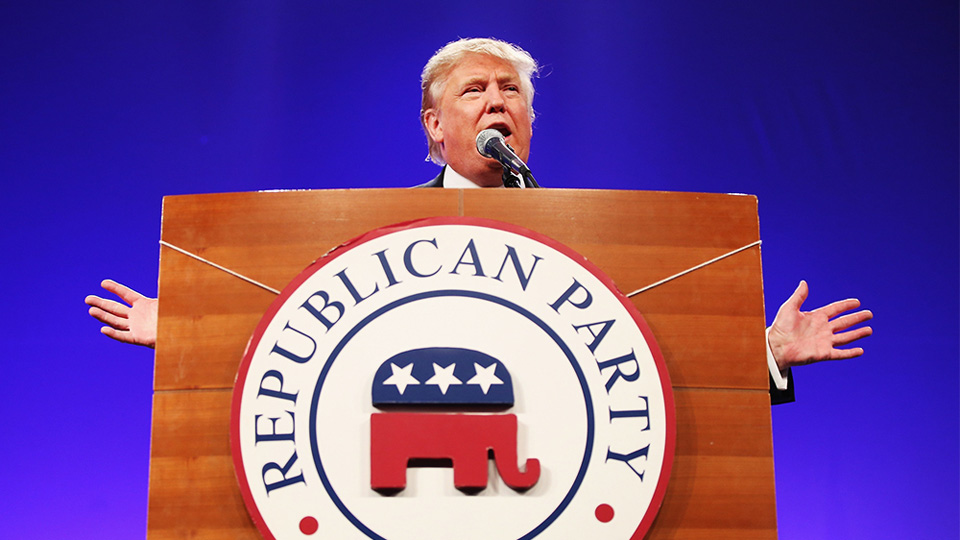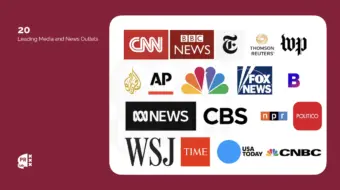
“Trump’s remarks do not represent the view of our Republican Party.”
That was the line put out by John McCain back in August, shortly after Donald Trump insulted Khizr and Ghazala Khan, the parents of U.S. Army Captain Humayun Khan who died fighting in Iraq in 2004.
Now, with Trump’s proud boasting of sexual assault in the Access Hollywood tapes, it’s a talking point Republicans are being forced to resurrect. Stalwarts like Chris Christie and Rudy Giuliani hold on, but many Republicans who have the unfortunate fate of sharing a ballot with Trump are tripping over themselves to get some distance from their standard-bearer.
The ranks of GOP down-ticket candidates jumping from the Trump ship grows with each passing day. What started as a trickle after his hints about assassinating Hillary Clinton back in August is now turning into a deluge. A few big Trump donors are literally demanding their money back, seeking a refund on an investment they now think won’t pay off.
Even House Speaker Paul Ryan thinks the Trump campaign has already given up the ghost; he’s focusing on keeping the GOP’s Congressional majority. Trump, in his now typical style, fired back that he doesn’t need or want Ryan’s support and that he’s happy to be unshackled from the confines of the GOP leadership. And thus does the whole Republican Party appear to be in meltdown, consumed by a civil war that’s sinking its chances at the White House and increasingly threatens its hold on the Senate and maybe even the House.
“We’re not Trump,” is the last resort for a desperate party.
But is it really true that Donald Trump doesn’t represent the Republican Party’s policies and ideology? Can McCain, Ryan, and the rest rightfully claim that Trump is an anomaly, out of sync with their movement?
Well, yes and no. But mostly no.
Trump is certainly a different kind of animal than your typical Republican nominee of recent years, and he does say some pretty unorthodox things about trade, at least for a Republican. And it’s true that there’s been a factional divide simmering in the GOP for quite some time, with Trump embodying the forces on one side of the schism.
So while it would be dishonest to say that Trump is exactly the same as all other Republican candidates and leaders, it would be even more wrong to say he’s worlds apart from what the party represents. He speaks to its voting base in a different way than other leaders, yet he carries an agenda that is not too unlike theirs. Minus his sham promises to “fix” trade, what you actually get with Trump is the standard GOP program carried to its extreme – stripped of any politically sophisticated façade. His politics are the endgame of a strategy that the GOP has been pursuing for a very long time.
Trump is the endgame of GOP strategy
The resurgence of free market economics and the increasing pace of the communications and technological revolution since the 1980s have meant that all the old certainties of life in the postwar industrial economy are gone. The aftermath of the great financial crisis and the slow recovery that followed only sped up the process of cultural disintegration that has been felt by many communities.
The rising share of immigrants, people of color, and other minority communities is changing the face of the country. The young generation leans left and a woman is now poised to take the highest office in the land, just eight years after nearly capturing it in her first go-around. Terrorism and war seem to be permanent parts of life now.
Such changes have created significant insecurity for certain segments of the voting public (especially white, male, and rural working class constituencies). Many of those left behind by globalization or who have seen precious few of the supposed benefits of free trade are looking for a way to weather discomforting times. Border walls, Muslim bans, and pledges to re-open the mines and factories foster a sense of solidity; they promise a return to a kind of stable life that supposedly characterized the past – back when America was Great.
The openness with which Trump talks about such things is what sets him apart from the rest of the GOP. But this is all really a matter of style, not substance.
It’s become pretty standard for news wonks to discuss Trump’s populist “I am your voice” campaign in terms of its racism, sexism, and xenophobia. Such things are of course hallmarks of the Trump-Pence roadshow, but in reality, they are also the strongest elements connecting Trump to the politics of the Republican Party.
For a long time, and especially since Barack Obama was elected, the GOP has sought to manipulate voters through a mix of barely-concealed racism, misogyny, and reactionary politics. They stirred up Tea Party resentment, gave a wink to birtherism, instituted legislative attacks on women, LGBTQ people, immigrants, and other groups. They stripped the Voting Rights Act step-by-step, undermining the right of African-Americans in particular to cast their ballots freely. They cut corporate regulations, privatized public services, and sold off political influence to the highest bidder. Republicans have been following such a playbook for years, all the way back to Reagan, or even Nixon. They got a lot of Democrats to go along with them in carrying it out.
They utilized such tactics as part of a larger strategy aimed squarely at beating back the advances made by trade unions and the people’s movements in the 1960s and 70s. It was a strategy on the part of capital to retake the offensive against labor and the left. From Reagan’s smashing of PATCO in 1981 and the recession that was engineered with interest rate hikes to 21 percent that same year, all the way up to the Paul Ryan austerity budgets of recent years, the GOP’s agenda has been one of crushing labor and starving government (except for the military of course).
Trump is just the next step – the final logical development of this kind of politics. He’s an extreme version of what Republicans have been offering for 35 years, but he is not promising anything all that radically different.
Trump is what happens when the party loses control of its own messaging. The racist, sexist, and xenophobic things that were supposed to be done on the sly are now blasted through the megaphone of Trump’s mouth. It’s decades of bad political karma catching up to them.
Opportunity for a landslide?
The potential benefit for the people’s movements in all this is that Trump’s damaging exposure of the GOP’s true nature presents an opportunity to deal the right wing a major blow in these elections. He’s doing so much harm to the Republican brand that it is once again possible to ponder whether a landslide victory for not just the Clinton campaign but also Democrats in Congress could be in the cards.
Latest polls since the release of the tape and the second debate show that growing sections of the American people are increasingly turned off by Trump. The duty of progressives is to make the case that it is not just Trump that’s the problem, but the whole GOP – up and down the ballot. That also means crafting an agenda to meet the concerns around issues like jobs and trade that attracted some folks to Trump in the first place. Coming up with solutions to the problems of working people used to be the bread-and-butter of the left. We’ve got to get back to it.
From now until Election Day – and after – progressives have to organize and push for a democratic program that speaks to and meets the interests of the broad working class, African-Americans, women, Latinos, youth, the LGBTQ community, and others.
We shouldn’t let the opportunity presented by Trump’s implosion pass us by.












Comments